For many individuals and couples facing fertility challenges, IVF with donor eggs offers a powerful path to parenthood when other options have failed. Whether due to age-related infertility, poor egg quality, genetic concerns, or medical conditions, using donor eggs can significantly increase the chances of conception. Advances in Assisted Reproductive Technology (ART) have made egg donation a safe, ethical, and widely accessible solution—especially for women who are unable to produce viable eggs. IVF with egg donation not only provides a higher success rate but also allows intended parents to experience pregnancy, childbirth, and genetic connection through a partner or sperm donor. In this article, we explore the key reasons why many intended parents choose IVF with egg donor to fulfill thier family goals.
Imagine a world where biology no longer dictates parenthood. For those facing infertility due to early menopause, genetic conditions, or age-related challenges, donor-assisted reproduction has become a transformative solution. Studies show pregnancy rates exceeding 50% per cycle when using third-party genetic material, offering new hope after repeated unsuccessful attempts.
Key Takeaways
- Third-party genetic material significantly improves pregnancy success rates for those with ovarian challenges
- Advanced embryo screening increases healthy pregnancy outcomes
- Option supports diverse family structures including LGBTQ+ parents
- Preservation techniques maintain egg viability for future use
- Requires careful consideration of legal and emotional factors
📞 Get in Touch for a Free Surrogacy Consultation
📱 +91-8800481100 (WhatsApp | LINE | Viber)
📧 neelam@ivfconceptions.com
🌐 https://www.georgiasurrogacyagency.com/
Additional guides for IVF with egg donor
Whose Egg Is Used in Surrogacy? Understanding Options
Egg Donor vs Frozen Egg Bank: Which to Choose?
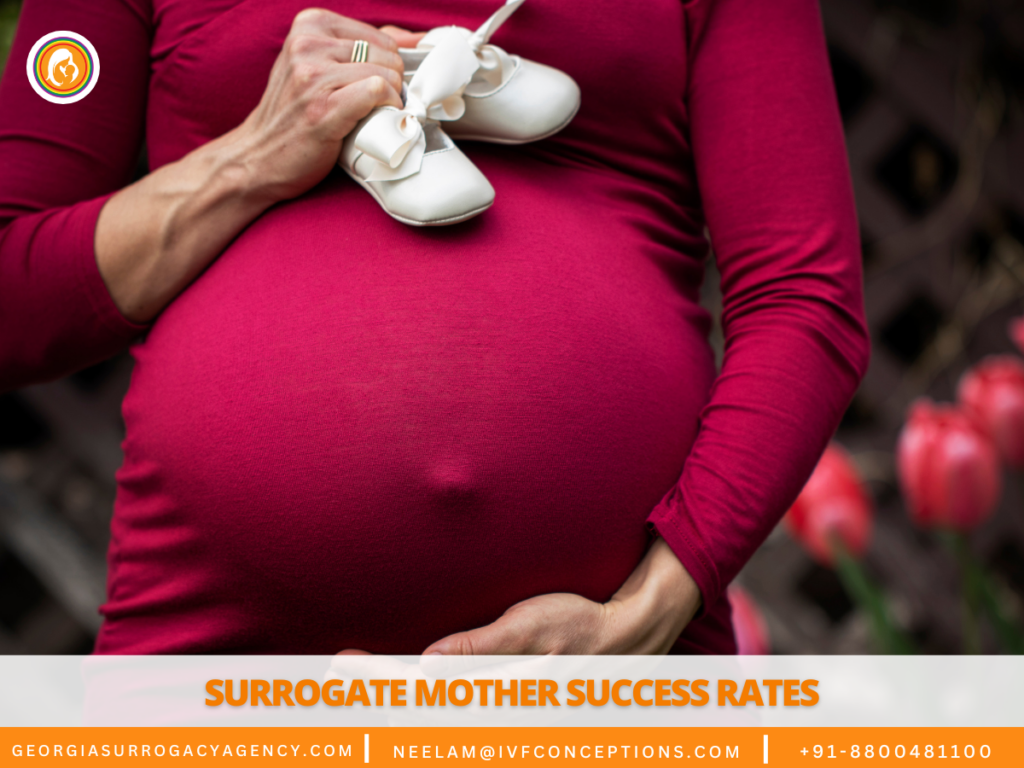
Understanding the IVF with Egg Donor Process
Modern family-building journeys often involve coordinated medical teamwork. When biological constraints prevent conception, third-party reproduction offers a scientifically structured approach. This method combines advanced reproductive technology with careful donor selection to create viable embryos.
How Donor Material Works?
Healthy candidates aged 21-32 undergo rigorous health screenings before participating. Doctors synchronize the donor’s cycle with hormone injections, stimulating multiple egg production. Meanwhile, intended parents complete legal agreements outlining parental rights.
Laboratory Phase Breakdown
The process unfolds through four key stages:
| Stage | Duration | Key Action | Success Factor |
|---|---|---|---|
| Stimulation | 8-12 days | Follicle growth monitoring | Donor hormone response |
| Retrieval | 20-minute procedure | Ultrasound-guided extraction | Egg maturity assessment |
| Fertilization | 3-5 days | ICSI or traditional IVF | Sperm quality & embryologist skill |
| Transfer | Single session | Embryo placement monitoring | Uterine lining thickness |
Embryologists grade embryos using time-lapse imaging, selecting those with optimal cell division patterns. Frozen transfers now achieve comparable success rates to fresh cycles due to improved vitrification techniques.
Understanding these steps helps families anticipate timelines, costs, and medical requirements. Clinics report 63% live birth rates per transfer when using donor material from thoroughly screened sources.
Benefits of Using Donor Eggs
For those facing fertility challenges, donor-assisted methods offer renewed possibilities. Clinics like Pinnacle Fertility report 90% live birth rates per cycle when carefully screened genetic material is used—nearly double traditional IVF success rates. This approach often becomes a turning point after multiple unsuccessful attempts.
High Success Rates and Improved Outcomes
Younger biological material combined with advanced genetic testing reduces chromosomal abnormalities by 65%. Preimplantation screening identifies viable embryos with optimal development patterns. Many find this method provides more transfer-ready options compared to cycles using their own eggs.
Opportunities for Larger Family Building
Donor programs typically yield multiple embryos, allowing parents to pursue sibling pregnancies later. Some opt for sex selection, while others preserve embryos for future family expansion. Those who’ve experienced prior IVF failures often achieve pregnancy on their first donor cycle attempt.
Improved freezing techniques now maintain 95% of egg viability, offering flexibility in family planning timelines. With thorough medical and legal preparation, this path helps diverse families achieve their parenting goals efficiently.
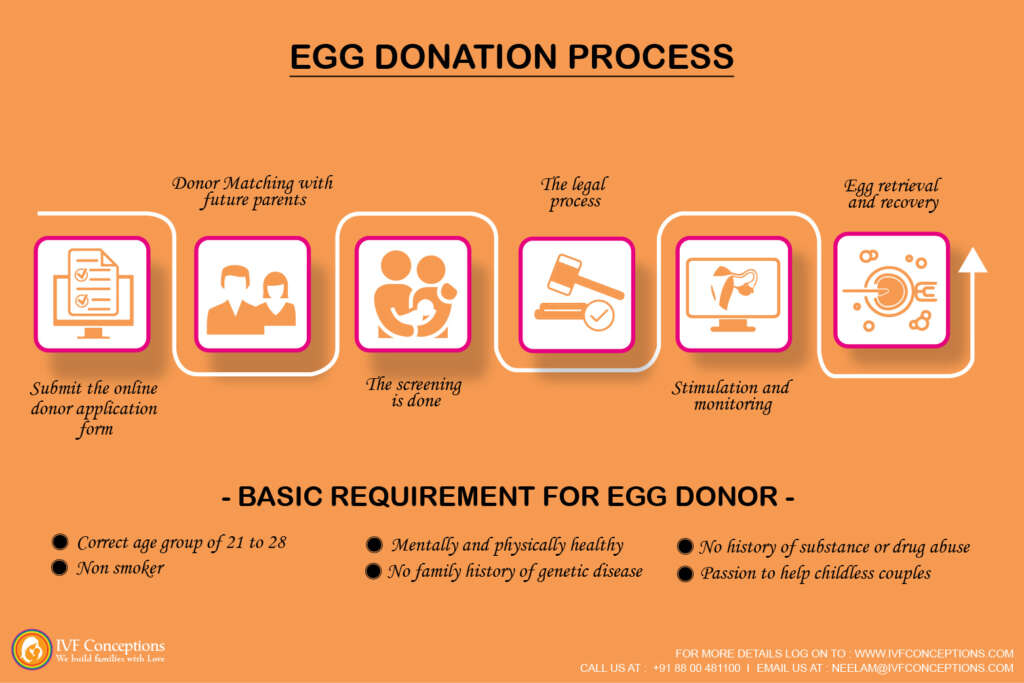
💰 IVF with Egg Donor Cost: What to Expect
The cost of IVF using donor eggs varies significantly depending on the country, clinic reputation, and services included in the package. It is typically more expensive than standard IVF because it involves additional procedures like donor matching, donor compensation, egg retrieval, and advanced embryo culture.
📊 Average Cost Breakdown by Country for using donor eggs IVF
| CountryEstimated Cost (USD)Includes | ||
| 🇺🇸 USA | $25,000 – $45,000 | Donor compensation, IVF cycle, meds, screening, legal fees |
| 🇪🇸 Spain | $7,000 – $10,000 | Anonymous donor, medication, embryo transfer |
| 🇨🇿 Czech Rep. | $6,000 – $8,000 | IVF cycle with donor eggs, donor screening, embryo culture |
| 🇬🇷 Greece | $6,000 – $9,000 | Full IVF cycle, donor selection, EU-regulated clinics |
| 🇬🇪 Georgia | $5,000 – $8,000 | Donor selection, medications, basic legal support |
| 🇨🇴 Colombia | $5,000 – $7,000 | Donor services, lab fees, embryo transfer |
| 🇮🇳 India | $3,000 – $6,000 | Restricted to locals; not open to foreign intended parents |
💡 Tip: Some countries offer all-inclusive packages that may cover accommodation, legal consultation, and follow-up embryo transfers—ideal for international intended parents.
🧾 What Influences the Cost?
- Donor Type: Anonymous or known, altruistic or compensated
- Clinic Quality & Technology: High-end clinics may charge more for advanced embryo lab procedures
- Medications: Often not included in base price and can cost $1,000–$5,000
- Legal and Administrative Fees: Especially in countries like the U.S. where egg donation contracts are required
- Number of Embryo Transfers: Some packages include 1 or 2 transfers; others charge per cycle
🎯 Choosing Cost vs. Quality
While affordability is important, intended parents should also consider:
- Success rates
- Legal protection
- Donor screening protocols
- Post-transfer support
Egg donation is an emotional and financial investment, so it’s vital to choose a clinic and country that balance both cost and quality.
 Why choose IVF with egg donor: Pros and Cons Overview
Why choose IVF with egg donor: Pros and Cons Overview
Exploring alternative paths to parenthood involves weighing practical benefits against emotional complexities. Third-party reproduction offers distinct medical advantages while requiring careful consideration of personal values and family dynamics.
Key Advantages for Intended Parents- why choose IVF with egg donor
This approach delivers three primary benefits:
- Higher success rates (63% live births vs 30% with own eggs for women over 40) with use donor eggs
- Multiple embryos created per cycle for future family expansion
- Biological connection maintained through paternal genetics
Women experiencing age-related fertility decline often see improved outcomes. Those under 35 using donor material achieve pregnancy rates comparable to younger biological parents.
Evaluating the Potential Downsides
Challenges include:
- Complex grief over lost maternal genetic connection
- Limited control over donor anonymity policies
- Higher costs compared to traditional IVF cycles
Many find comfort knowing the carrying mother influences fetal development through epigenetics. Reputable clinics provide mandatory counseling to navigate these emotional landscapes while ensuring legal protections for all parties.
Addressing Common Risks and Emotional Challenges
Building a family through donor-assisted methods involves navigating both medical realities and emotional landscapes. Modern clinics prioritize safety while helping parents process complex feelings that may arise during this journey.
Medical Risks and Genetic Screening
Reputable programs conduct over 100 genetic tests on donors, reducing chromosomal risks by 72%. Conditions like preeclampsia occur in just 8% of donor egg pregnancies—similar to traditional conceptions—and are managed effectively with early monitoring. Clinics perform comprehensive health evaluations before embryo transfer, ensuring optimal conditions for success.
Emotional Considerations for Families
Some intended mothers report initial grief over not sharing genetic ties with their baby. Counseling helps 89% of couples process these feelings within six months post-birth. Support groups connect families who’ve walked similar paths, fostering community understanding.
Fertility specialists emphasize that bonding begins long before birth. “The parent-child connection forms through caregiving, not chromosomes,” notes Dr. Lisa Marshall of Boston Reproductive Center. Regular check-ins with mental health professionals ensure emotional well-being throughout the pregnancy journey.
Legal and Financial Aspects of Using Donor Eggs
Navigating third-party reproduction requires careful planning around two critical factors: financial commitments and legal safeguards. Understanding these elements helps protect your family‘s future while managing expectations.
Breaking Down Treatment Costs
Programs typically range from $20,000 to $40,000, covering donor compensation, medical screenings, and lab fees. Additional expenses often include:
- Legal contracts ($2,500-$5,000)
- Embryo storage ($600/year)
- Medication ($3,000-$6,000)
Many clinics offer payment plans or shared risk programs. These help manage upfront costs while increasing chances of success through multiple cycle attempts.
Establishing Legal Protections
State laws govern parental rights in third-party reproduction. Reputable programs require:
- Pre-conception agreements outlining donor relinquishment
- Birth order establishment before embryo transfer
- Clear terms for future embryo ownership disputes
“Legal frameworks exist to protect everyone involved—especially the child,” notes family law attorney Maria Chen. Proper documentation prevents 92% of custody challenges according to ART Risk Management data.
Consulting financial advisors and specialized attorneys helps families make informed decisions. Many find this preparation reduces stress, allowing focus on the emotional journey ahead.
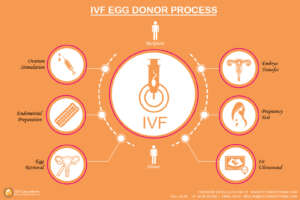
Technological and Medical Advancements in Egg Donation
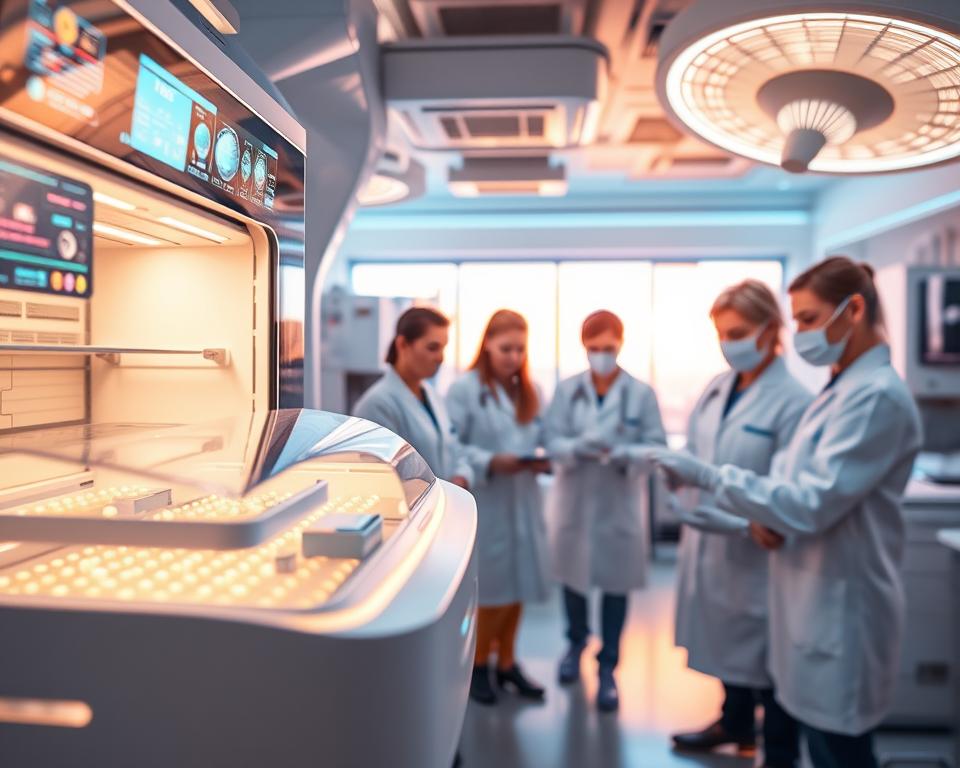
Breakthroughs in reproductive technology are reshaping possibilities for hopeful parents. Cutting-edge methods now enhance safety while improving outcomes across every stage of the process.
Innovations in Egg Preservation Techniques
Modern freezing methods maintain 97% of cellular integrity through vitrification. This flash-freezing technique prevents ice crystal damage, making frozen cycles as effective as fresh ones. Clinics now offer both options:
| Cycle Type | Preservation Method | Viability Rate | Time to Transfer |
|---|---|---|---|
| Fresh | Immediate fertilization | 89% survival | 5-6 weeks |
| Frozen | Vitrification storage | 95% survival | 2-3 months |
Synchronization protocols align donor and recipient cycles within 48 hours using hormone patches. This precision reduces medication side effects while optimizing uterine readiness.
The Role of Genetic Testing in Donor Selection
Advanced screening now evaluates 600+ genetic conditions before matching. Embryologists use preimplantation testing (PGT-A) to identify chromosomally normal embryos. Key benefits include:
- 68% lower miscarriage rates compared to untested embryos
- Ability to screen for inherited conditions using sperm from intended fathers
- Reduced multiple pregnancy risks through single-embryo transfers
These developments give people facing infertility greater confidence in building healthy families. As one genetic counselor notes: “We’re not just selecting donors—we’re engineering better starts for children.”
Conclusion
Modern fertility solutions continue to redefine family creation, offering success rates exceeding 60% per transfer when using carefully screened genetic material. Advanced embryo grading and freezing techniques now preserve 95% of viability, providing multiple opportunities for family expansion.
While this path presents emotional complexities, clinics report 89% of intended parents achieve resolution through counseling. Legal safeguards and thorough donor matching processes help mitigate risks, creating structured pathways toward parenthood.
Stories like Sarah’s twins or Mark’s daughter demonstrate how medical partnerships can rewrite family narratives. These journeys highlight both the scientific precision and human resilience involved in third-party reproduction.
Experts emphasize three critical steps: reviewing clinic success data, completing genetic counseling, and securing legal agreements. These measures ensure alignment between medical possibilities and personal values.
Consulting accredited specialists helps individuals navigate options tailored to their unique circumstances. Though challenges exist, 78% of families report the rewards far outweigh initial concerns—proof that modern medicine continues expanding paths to joyful parenting.
📞 Get in Touch for a Free Surrogacy Consultation
📱 +91-8800481100 (WhatsApp | LINE | Viber)
📧 neelam@ivfconceptions.com
🌐 https://www.georgiasurrogacyagency.com/
Why Intended Parents Choose Complete Surrogacy Agency for a Safe, Smooth & Successful Surrogacy Journey:
🌍 Access to multiple surrogacy destinations with 15+ years of international experience
🏥 Partnerships with top-tier fertility clinics and agencies, backed by references from past clients
👩🦱 Diverse egg donor options: Asian, Caucasian, African, Oriental, and more
💸 Transparent and affordable pricing—direct payments with no extra agency fees
🔒 No hidden costs—all charges are agreed upon upfront
🤝 Dedicated case manager for personalized support
📲 Fast, honest, and clear communication throughout
📑 Full legal support for visas, documentation, and baby exit processes
FAQs for IVF with egg donor
What makes donor eggs a viable option for fertility treatments?
How does the egg donation process work with IVF?
Are there age limits for using donor eggs?
What legal protections exist for families using donor eggs?
Can genetic testing prevent inherited diseases with donor eggs?
How do costs compare between traditional IVF and donor egg cycles?
What emotional support exists for families using donor conception?
Are frozen donor eggs as effective as fresh donations?
Here are additional authoritative and trusted websites for surrogacy-related information:
I am Neelam Chhagani, CEO and International Patient Follow-up Manager, representing IVF Conceptions. I work as a surrogacy consultant and assist and guide the Intended Parents to become parents via surrogacy, globally.
Read more about me:
https://www.linkedin.com/in/neelam-chhagani-92892229
https://www.ivfconceptions.com/neelam-chhagani-surrogacy-consultant
It will be my great pleasure to assist you.

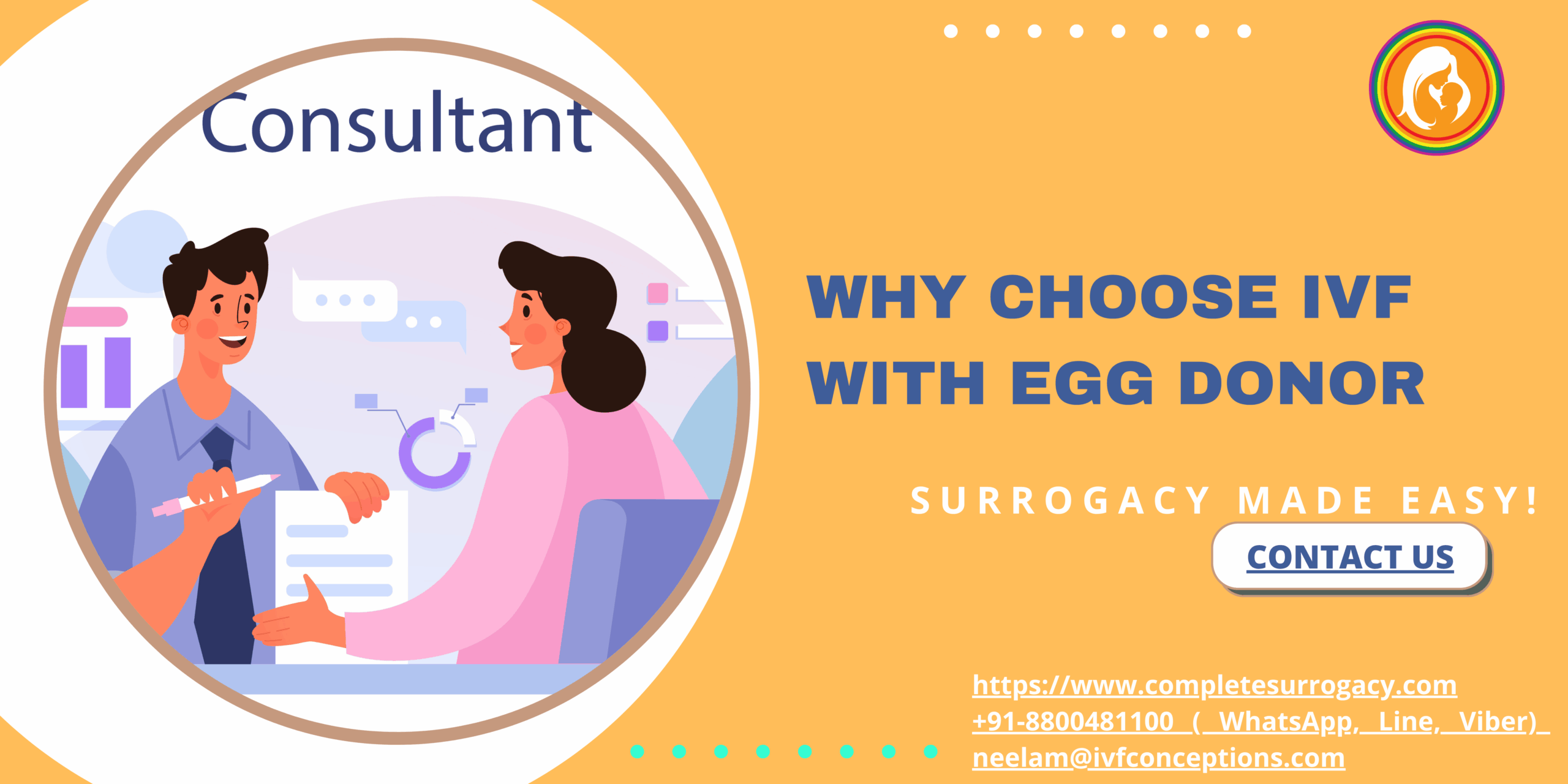
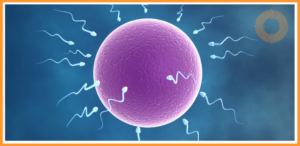 Why choose IVF with egg donor: Pros and Cons Overview
Why choose IVF with egg donor: Pros and Cons Overview
Add Your Comment